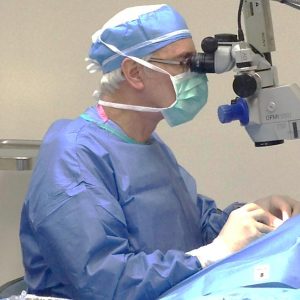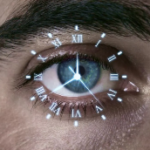Cataract Surgery Recovery Time

We understand that cataract surgery can be a bit on the scary side. Nobody loves the idea of eye surgery. However, it’s important to keep in mind that cataract surgery is the most common elective surgery performed in the United States. In 2015 an estimated, 3.6 million cataract procedures were performed in the United States and more than 20 million performed worldwide.
Modern cataract surgery is very safe and effective. In fact, the overall success rate of cataract surgery is about 98%.
Directly After Cataract Surgery
Directly after cataract surgery, you will need to have someone drive you home. Most patients feel tired after surgery, so taking a nap is recommended. For the 5 hours after surgery, you’ll need to wear a protective shield over the eye you had the cataract removed.
Recovery from cataract surgery is usually easy and without incident. To ensure the best possible outcome and to minimize your risk of complications after cataract surgery, it’s important to carefully follow your doctor’s post-operative instructions.
Frequently patients experience a dimness in the operative eye typically improving 24 hours post op. This can be more noticeable in dim light situations.
Most patients see clearly the day after surgery, with little or no discomfort. However, symptoms you may experience include mild pain in or around the eye, itchy and/ or gummy eye, blurred vision, feeling of grittiness in the eye, slight headache, bruising around the eye, and sensitivity and/or halos when looking at bright lights. These are normal symptoms that will diminish within a few days.
For the first 2 weeks after surgery you’ll have the following restrictions:
- Any significant worsening of vision or pain not relieved by Tylenol/artificial tears require calling our office immediately.
- Do not rub the eye at any time; rubbing may cause an infection resulting in vision loss or loss of your eye.
- Must wear the shield while sleeping or napping (secure pointed/tapered end on the bridge of nose, rim of shield on brow and cheekbones.)
- No sleeping on the surgical side or stomach.
- No eye makeup, hot tubs or swimming pools for 3 weeks after surgery.
- No bending fully at your waist where your head goes below your heart (e.g. to put your shoes on or pick something up.) You may squat down to pick things up.
- Shower/shampoo with shield taped on and holding dry washcloth over shield (your back is to the water and your head is tilted up; same rules for the salon/hairdresser.)
- When washing your face, do not touch below the brow or above cheekbone, do not get soap/ water in eye.
- For crusting/dried drop residue on lashes you may wet a tissue and gently drag back and forth over closed eye to loosen eyelash debris. No pressure is required, just repeat as necessary.
- You may resume REDUCED regular exercise 1-2 days post op; discuss with the doctor.
- Do not blot/push on the eye with a tissue. Wipe tears once they are below the cheekbone.
- You may use preservative-free artificial tears (Refresh, Optive, Genteal or Systane) as much as needed to sooth irritation (do not use within 15 minutes of other post-operative drops.)
- You may wear your old glasses if not too blurry, dark glasses, or a pair of clear safety glasses for your comfort. You may notice between eye surgeries that your eyes don’t work well together; (e.g. depth perception or reading) this is normal.
- Ask your eye care specialist if you are legal to drive during your recovery.
4-6 Weeks after Cataract Surgery:
Within 4-6 weeks after cataract surgery, your eye should be comfortable and your vision should be clear. If you have residual nearsightedness, farsightedness or astigmatism, you may need prescription eyeglasses. Final eyeglass prescriptions for the fine-tuning of distance vision and/or reading will be done 4-6 weeks after your second eye surgery (same time frame if you are only having surgery in one eye.)
Cataract surgery today is very safe and effective, and recovery is very easy. Follow these instructions and you’ll be well on your way to clearer vision.
To make an appointment or to learn more about cataract surgery, please call 777-2777 or visit myoccr.com.
Other posts about cataract surgery:
https://ophthalmicconsultants.com/2016/09/15/cataracts-uv-exposure-driving/

